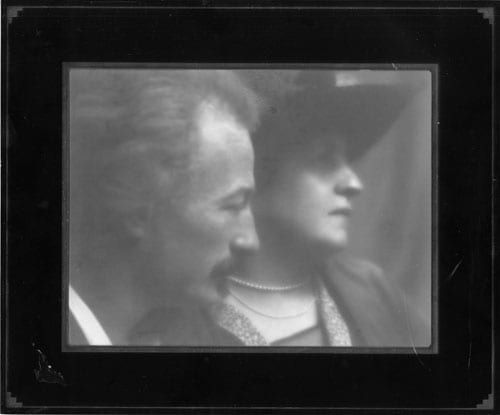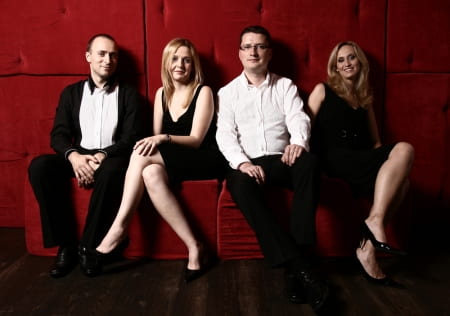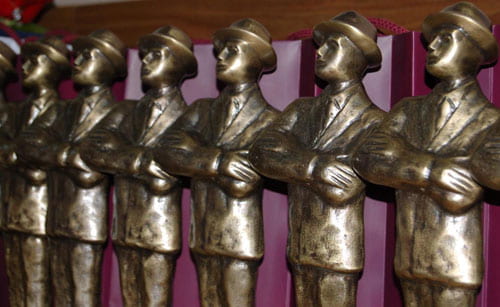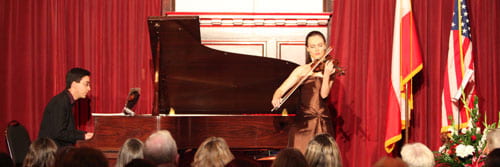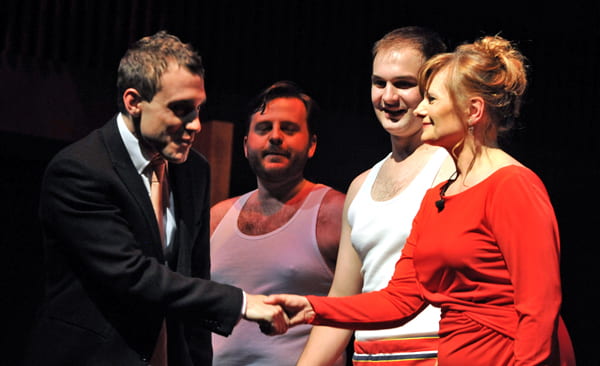Polish Music Newsletter Vol. 19, no. 6
PMC News
Recent Donations to the PMC
 Recently PMC Director Marek Zebrowski visited with longtime PMC supporter, Anne Appleton-Strakacz. The daughter of Sylwin Strakacz, Ignacy Jan Paderewski’s personal secretary, she was Paderewski’s goddaughter and has served as steward for much of the remaining personal memorabilia belonging to the Paderewski family and staff. In support of the PMC’s dedication to the Paderewski legacy, Mrs. Appleton-Strakacz periodically donates amazing items to our already substantial Paso Robles Collection of Paderewski memorabilia.
Recently PMC Director Marek Zebrowski visited with longtime PMC supporter, Anne Appleton-Strakacz. The daughter of Sylwin Strakacz, Ignacy Jan Paderewski’s personal secretary, she was Paderewski’s goddaughter and has served as steward for much of the remaining personal memorabilia belonging to the Paderewski family and staff. In support of the PMC’s dedication to the Paderewski legacy, Mrs. Appleton-Strakacz periodically donates amazing items to our already substantial Paso Robles Collection of Paderewski memorabilia.
- Black-and-white photograph of Paderewski, Anne Strakacz and others in front of a country palace near Poznań (mid-1920s); framed, 10.5 x 8.5 in. [pictured at right]
- Black-and-white photograph of Paderewski with the Strakacz family (New York City, Christmas 1940); framed, 10.5 x 8.5 in.
- Black-and-white photograph (undated) of the USS Paderewski; framed, 17.5 x 9.5 in.
- Black-and-white photograph (undated) of Riond Bosson, Switzerland; framed, 16.5 x 11 in.
- Black-and-white photograph of Helena Paderewska, inscribed to Helena Liibke, signed and dated 2 February 1920 by Helena Paderewska; framed, 16 x 12. 5 in
- Black-and-white photograph of Ignacy Jan Paderewski, inscribed to Helena Liibke, signed and dated 22 January 1920 by Ignacy Jan Paderewski; framed, 16 x 12.5 in.
- Poster for Moonlight Sonata” (undated); framed 15 x 12.5 in.
- Poster for Moonlight Sonata” (undated); framed 14.5 x 11.5 in.
- Helena Paderewska’s Belgian lace collar; framed and mounted, 19 x 24 in.
- Helena Paderewska’s Belgian lace collar; framed and mounted, 12.5 x 14.5 in.
- Engraving (black-and-white) of the King of Sweden receiving Polish delegate (16 August 1655); framed, 17 x 14 in.
- Engraving (black-and-white) of the Polish military on the outskirts of Warsaw (19 July 1650); framed, 29 x 16.5 in.
- Ignacy Jan Paderewski Plays the Menuet—reproduction of a 1920 oil painting by Charles E. Chambers; framed, 33 x 29.5 in.
- Ignacy Jan Paderewski—reproduction of an 1892 pencil portrait by Edward Burne-Jones; framed 11.5 x 12.5 in.
- Black-and-white photograph of Paderewski with Sylwin Strakacz, inscribed to Helena Liibke, signed and dated by Paderewski, 20 February 1939, framed, 10.5 x 9 in.
- Sepia-tone oval photograph of Helena Górska (1890s?); framed, 7 x 9 in.
- Sepia-tone photograph of Helena Modrzejewska [Modjeska] in scribed in the back to Anetka Strakacz, signed and dated by Sophie L. Duer, May 1941; framed, 6.5 x 8 in.
- Black-and-white photograph of Ignacy Jan and Helena Paderewski in a glass, art deco frame (undated); framed, 12 x 10 in.
- Paderewski at the piano—reproduction of a painting by Charles E. Chambers; mounted on a plaque, 10 x 10 in.
- Round black-and-white photograph of Paderewski, inscribed on the back to Helena Liibke, signed and dated by Kazimiera Dąbrowska, 20 December 1935; framed, 8 x 6 in.
- Reproduction of a portrait of Chopin by Winterhalter; framed, 5 x 7 in.
- Reproduction of a color drawing of young Paderewski at the piano (undated, artist unknown); framed, 7 x 5.5 in.
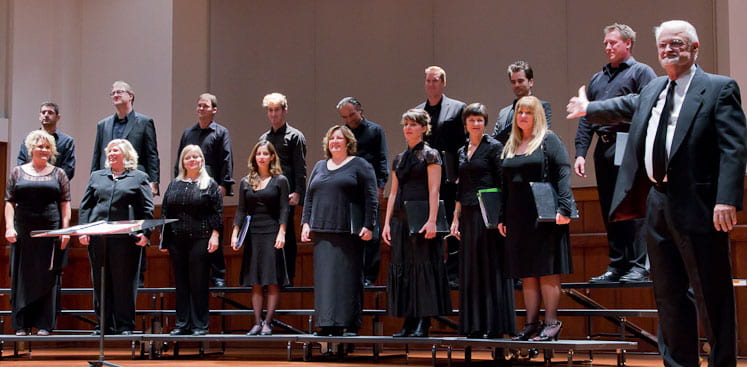
On June 3, PMC friend and Thornton School of Music professor of choral music Nick Strimple joined us at the PMC library for lunch and brought a surprise: a donation of several important choral scores from early and contemporary Polish composers! These works will be added to our collection for use by choirs at USC and for research by performers and scholars around the world.
- Karol Szymanowski: Pieśni kurpiowskie na chór mieszany [Kurpie Songs for mixed choir]; vocal parts (SATB); PWM Editions, 1952. 4 sets
- Karol Szymanowski: Sześć pieśni ludowych (kurpiowskie) na chór mieszany a cappella [Six Folk Songs (Kurpie Region) for mixed choir a cappella]. Karol Szymanowski, Collected Works, Vol. 21. Score; PWM Editions, 1979. 2 copies
- Karol Szymanowski: Veni Creator, Op. 57, for soprano, mixed choir and orchestra; and Litania do Marii Panny, Op. 59, for soprano, female choir and orchestra. Karol Szymanowski, Collected Works, Vol. 8. PWM Editions, 1975
- Karol Szymanowski: Agawe, Op. 38; Demeter, Op. 37 bis for alto solo, female choir and orchestra. Score; PWM Editions, 1975
- Józef Świder: Cantate domino for mixed choir and piano; vocal piano score. Gentry Publications, 1989
- Andrzej Koszewski: La espero [The Hope] for two mixed voice choirs. Score; PWM Editions, 1965
- Bartłomiej Pękiel: Missa a 14 for two mixed choirs, string orchestra, basso continuo and organ. Score; PWM Editions, 1971
- Bartłomiej Pękiel: Missa brevis per chorum quattor vocum. Score; PWM Editions, 1966
- Krzysztof Penderecki: Utrenja. Score; Schott Editions, 1972
- Krzysztof Penderecki: Agnus Dei for mixed choir a cappella. Score; PWM Editions, 1982
- Krzysztof Penderecki: Song of Cherubims for unaccompanied mixed choir. Score; PWM Editions, 1987
- Krzysztof Penderecki: Ecloga VIII for six male voices. Score; PWM Editions, 1974
- Krzysztof Penderecki: Te Deum for solo voices, mixed choir and symphony orchestra. Score; PWM Editions, 1980
- Krzysztof Penderecki: Recordare Jesu pie… for solo voices, mixed choir and symphony orchestra. Score; PWM Editions, 1983
- Krzysztof Penderecki: Cantata in honorem Almae Matris Universitatis Iagellonicae… for two choirs and orchestra. Score; PWP [Przedstawicielstwo Wydawnictw Polskich] Edition, 1967
- Krzysztof Penderecki: Lacrimosa for soprano solo, mixed choir and orchestra. Score; PWM Editions, 1981
- Krzysztof Penderecki: Canticum canticorum Salomonis for 16-part vocal ensemble and orchestra. PWM Editions, 1975
- Krzysztof Penderecki: Kosmogonia for solo voices, mixed choir and orchestra. Score; PWM Editions, 1971
Thank you to our good friends for entrusting us with these special items and scores!
Chopin, Louisiana
We always knew that Louisiana has a French flair: after all it was named after Louis XIV of France and it once included the entire Mississippi River basin—all the way from the Gulf Coast to the southern tip of Canada. Although a controversial move initially, President Jefferson’s 1803 Louisiana Purchase for about $15 million (roughly a nickel per acre) was soon accepted as a shrewd investment that doubled the size of the very young United States instantly and opened the way for extending the country all the way to the Pacific Coast. To this day, Louisiana is a treasure trove of cultures, languages and cuisine.
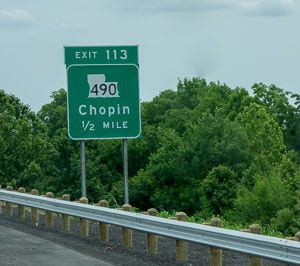 Recently, our friend Chuck Bragg—a dedicated PMC volunteer and roving correspondent at-large—sent us an intriguing picture. Travelling on US 49, Chuck spotted a sign for LA Highway 490 to Chopin, Louisiana! This amazing news was an instant Mazurka to our ears and further investigation (internet searches, mostly) revealed that Chopin is a tiny hamlet in central Louisiana where rather Biblical-sounding Abraham and Emmanuel Roads intersect with the LA 490 and US 49. Chopin, an unincorporated community located in Natchitoches Parish, is about 20 miles southeast of Natchitoches.
Recently, our friend Chuck Bragg—a dedicated PMC volunteer and roving correspondent at-large—sent us an intriguing picture. Travelling on US 49, Chuck spotted a sign for LA Highway 490 to Chopin, Louisiana! This amazing news was an instant Mazurka to our ears and further investigation (internet searches, mostly) revealed that Chopin is a tiny hamlet in central Louisiana where rather Biblical-sounding Abraham and Emmanuel Roads intersect with the LA 490 and US 49. Chopin, an unincorporated community located in Natchitoches Parish, is about 20 miles southeast of Natchitoches.
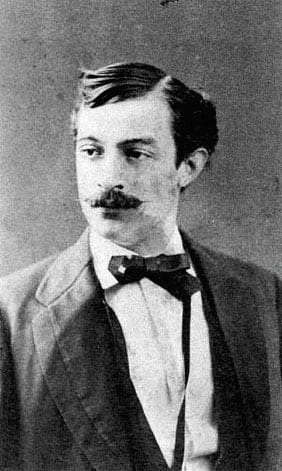 The name, alas, is most likely derived from a celebrated Louisiana writer, Kate Chopin (1850-1904). Born Kate O’Flaherty in St. Louis, in 1870 she married Oscar Chopin (1845-1882, pictured at right), whose parents came from a well-to-do cotton-growing family in Louisiana. The newlyweds travelled to Europe and settled in New Orleans, but later moved to Cloutierville, Louisiana, where Oscar owned plantations and a general store. When only a few years later he died of malaria, Kate Chopin was left with six boys and decided to dedicate herself to a literary career. Her poetry and short stories were first published in the New Orleans Times-Democrat in the early 1890s. Besides many collections of short stories and novels, Kate Chopin’s best-known large-scale work is The Awakening (1899), a gritty portrayal of an infamous woman in New Orleans’ French Quarter. Kate Chopin died of a stroke during her visit to St. Louis’s World Fair in 1904. Today, she is generally acknowledged as a pioneer of feminist literature and an author whose unique voice sheds light on the Victorian era plantation life in the South.
The name, alas, is most likely derived from a celebrated Louisiana writer, Kate Chopin (1850-1904). Born Kate O’Flaherty in St. Louis, in 1870 she married Oscar Chopin (1845-1882, pictured at right), whose parents came from a well-to-do cotton-growing family in Louisiana. The newlyweds travelled to Europe and settled in New Orleans, but later moved to Cloutierville, Louisiana, where Oscar owned plantations and a general store. When only a few years later he died of malaria, Kate Chopin was left with six boys and decided to dedicate herself to a literary career. Her poetry and short stories were first published in the New Orleans Times-Democrat in the early 1890s. Besides many collections of short stories and novels, Kate Chopin’s best-known large-scale work is The Awakening (1899), a gritty portrayal of an infamous woman in New Orleans’ French Quarter. Kate Chopin died of a stroke during her visit to St. Louis’s World Fair in 1904. Today, she is generally acknowledged as a pioneer of feminist literature and an author whose unique voice sheds light on the Victorian era plantation life in the South.
The Chopin family comes from the Lorraine region in the Eastern France—some of them like Nicholas Chopin, Frédéric’s father, immigrated to Poland. Could Oscar Chopin be a relative of Nicholas who immigrated to Louisiana? If any of our readers can help with musical ties (especially Polish music ties) to this story, please e-mail the Polish Music Center at polmusic@usc.edu. Thanks!
News
Zubel Selected For 2013 Int’l Rostrum Of Composers
 The International Rostrum of Composers (IRC) is organized by the International Music Council (IMC)—an affiliate of UNESCO, the UN body promoting culture, science and education—with the financial assistance of participating radio networks. The IRC is an international forum of representatives from member broadcasting organizations who come together for the purpose of exchanging and broadcasting contemporary art music. For exactly 60 years now the Rostrum has been one of the most important projects in promoting contemporary creation in music via radio broadcasting and has become a unique forum for professional exchange among radio music producers. Its central purpose, supported closely by the European Broadcasting Union, is to provide contemporary musical creations to the largest possible number of broadcasts worldwide.
The International Rostrum of Composers (IRC) is organized by the International Music Council (IMC)—an affiliate of UNESCO, the UN body promoting culture, science and education—with the financial assistance of participating radio networks. The IRC is an international forum of representatives from member broadcasting organizations who come together for the purpose of exchanging and broadcasting contemporary art music. For exactly 60 years now the Rostrum has been one of the most important projects in promoting contemporary creation in music via radio broadcasting and has become a unique forum for professional exchange among radio music producers. Its central purpose, supported closely by the European Broadcasting Union, is to provide contemporary musical creations to the largest possible number of broadcasts worldwide.
This year’s 60th session of the IRC was held from May 28-31. Thanks to the invitation of IMC/UNESCO partner Czech Radio, the IRC was held in the Czech Republic for first time ever this year.
 From amongst the 51 recordings of new works submitted by 30 IMC-affiliated broadcasting stations for the 2013 Rostrum in the general and “young composers” categories, Polish Radio’s submission of Not I by Agata Zubel was named the 2013 “Selected Work” and received overwhelmingly positive feedback from nearly all broadcast representatives at the IRC listening sessions. Below is an excerpt about the work from Polish Radio’s external news service, www.thenews.pl:
From amongst the 51 recordings of new works submitted by 30 IMC-affiliated broadcasting stations for the 2013 Rostrum in the general and “young composers” categories, Polish Radio’s submission of Not I by Agata Zubel was named the 2013 “Selected Work” and received overwhelmingly positive feedback from nearly all broadcast representatives at the IRC listening sessions. Below is an excerpt about the work from Polish Radio’s external news service, www.thenews.pl:
Written for soprano, chamber ensemble and electronics, the composition is a setting of Samuel Beckett’s dramatic monologue ‘Not I’, a logorrhoea of fragmented sentences in which an elderly woman tells the story of her life.
Respecting the writer’s intention, Agata Zubel has devised a video layer to accompany the performance. In it, a light blue mouth, against a background of a blackened face, utters or sings the individual fragments of the text. The spotlight is cast on the soloist, with the remaining space in darkness.
Not I was presented at the International Rostrum of Composers in a recording from last year’s Sacrum-Profanum Festival in Kraków, with Klangforum Wien conducted by Clemens Power and Agata Zubel as the soloist.
All works presented during the listening sessions of the IRC are made available by the European Broadcasting Union (EBU) to its wide network of members and associate members via satellite. These dissemination schemes ensure excellent international coverage for the composers. Also, all IRC recordings, scores and notes are deposited at the Music Centre The Netherlands in Amsterdam.
[Sources: pwm.com.pl, imc-cim.org, unesco.org, thenews.pl]
Premieres At Kraków Composers’ Days
 Kraków, Poland’s ancient capital, has witnessed its annual, week-long celebration of music by local composers held and various venues in the heart of this historic city. Organized by the Kraków chapter of the Polish Composers’ Union [ZKP], the 25th edition of the Composers’ Days Festival was held May 19-26, 2013 and it celebrated birthday anniversaries of such notables as Krzysztof Penderecki, Zbigniew Bujarski and Adam Walaciński. Led by Marek Moś, on May 24 the Kraków Philharmonic presented works by Penderecki, Górecki and Bujarski, as well as Stravinsky’s Sacre du printemps in commemoration of the centenary of the world premiere of this path-breaking ballet in Paris in 1913. World premieres of works by Bujarski – Largo for two cellos and viola (2013) and Walaciński – Canzona for cello and percussion (2013) were also given on May 20 in Floriańka Hall, performed by Ewa Szczepańska-Chwast – viola, Beata Urbanek-Kalinowska – cello and the Cracow Duo and Malawski Trio.
Kraków, Poland’s ancient capital, has witnessed its annual, week-long celebration of music by local composers held and various venues in the heart of this historic city. Organized by the Kraków chapter of the Polish Composers’ Union [ZKP], the 25th edition of the Composers’ Days Festival was held May 19-26, 2013 and it celebrated birthday anniversaries of such notables as Krzysztof Penderecki, Zbigniew Bujarski and Adam Walaciński. Led by Marek Moś, on May 24 the Kraków Philharmonic presented works by Penderecki, Górecki and Bujarski, as well as Stravinsky’s Sacre du printemps in commemoration of the centenary of the world premiere of this path-breaking ballet in Paris in 1913. World premieres of works by Bujarski – Largo for two cellos and viola (2013) and Walaciński – Canzona for cello and percussion (2013) were also given on May 20 in Floriańka Hall, performed by Ewa Szczepańska-Chwast – viola, Beata Urbanek-Kalinowska – cello and the Cracow Duo and Malawski Trio.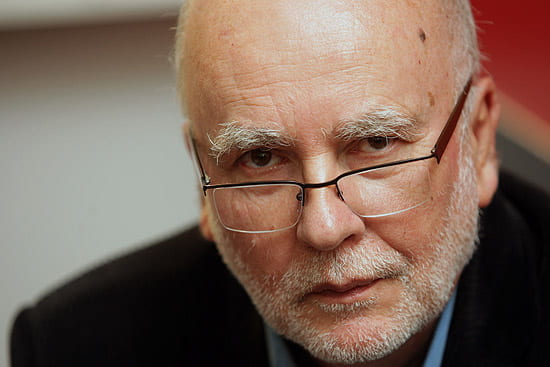
Another of the Festival’s evening events was dedicated to poetry, featuring poems by Adam Zagajewski as set by members of the young generation of composers, including world premieres of works by Michał Gronowicz – Small Objects for soprano, mezzo-soprano, piano and cello (2010), Jakub Polaczyk – Stacja–Station for soprano, alto, piano and toy-piano (2010), and Emil Bernard Wojtacki – Nad morzem for soprano, cello and piano (2010). They were performed by Jadwiga Kirschanek – soprano, Katarzyna Guran – soprano, Olga Trzebicka – soprano, Jakub Gucik – cello, and Raminta Lampsatis (Wilno) – piano on May 25 in the Golden Hall of the Kraków Philharmonic.
Other world premieres were presented throughout the Festival. On May 22 in Floriańka Hall, Anna Zawadzka-Gołosz – Prelude and Fugue for piano (2013) and Maciej Negrey – Suita seria for two cellos (2013) were premiered by Dorota Imiełowska – cello, Łukasz Pawlikowski – cello and Mariola Cieniawa – piano. Later that day, premieres of Juliusz Łuciuk’s work dedicated to the Italian city of L’Aquila and the earthquake devastation there, entitled Omaggio a l’Aquila for soprano, baritone and 10 strings (2013), and Jerzy Kaszycki – String Quartet No. 1 (1968) were performed by the Łuciuk Family 10 String Ensemble, Bożena Harasimowicz – soprano and Dariusz Siedlik – baritone.
On May 23, world premieres of Michał Jakub Papara – To niemożliwe for violin and viola (2006-09), Grzegorz Majka – Kwartet na różne czasy for piano, violin, viola and cello (2012) and Szczepan Tesarowicz – Miniatury for celtic harp (2012-13) were given by the Euphony Piano Quartet (Dobrochna Krówka – piano, Katarzyna Szklarz – violin, Natalia Miszczyk – viola and Sylwia Baszyńska – cello), and Agnieszka Kaczmarek-Bialic – harp.
[Sources: polmic.pl, karnet.krakow.pl, pwm.com.pl]
New Works by H.M. Górecki at PWM and DUX
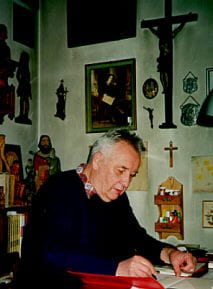
April 1998. Photo by Maja Trochimczyk.
20 new choral works on religious themes by Henryk Mikołaj Górecki are being prepared for a first edition of publication by PWM Music Editions. Simultaneously, they will be recorded for the first time on the DUX label. Since Górecki wanted to give this set the “test of time” and planned to return to them at some future date, these compositions were never before published. His death in November 2010 unfortunately prevented his plans from being realized. Górecki’s son, Mikołaj, rescued these works from oblivion and edited the manuscripts for the upcoming PWM Edition.
[Source: pwm.com.pl]
Editorial: Much Ado About Ruch Muzyczny
By Marek Żebrowski, PMC Director
Dorota Szwarcman’s May 29 posting on the Polityka.pl blog begins with a pregnant question, “Czy ‘Ruch Muzyczny’ upadnie?” [Will Ruch Muzyczny Fail?]. Ms. Szwarcman’s arresting headline and the article that follows (see: http://szwarcman.blog.polityka.pl/2013/05/29/czy-ruch-muzyczny-upadnie/) produced a flood of impassioned responses from the community of Polish intellectuals, writers, musicians, music lovers, and other members of the general public.
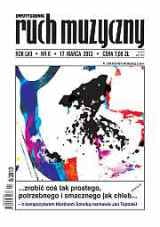 The basic premise of Ms. Szwarcman’s article is her strong doubt about the suitability of Tomasz Cyz, the newly-appointed Editor-in-Chief for Ruch Muzyczny, Poland’s venerable bi-weekly devoted to all things musical. Until very recently the editor at dwutygodnik.com—a bilingual online publication of the National Audiovisual Institute providing extensive coverage of music and other cultural events in Poland—Mr. Cyz was appointed to take over the reins at Ruch Muzyczny by Grzegorz Gauden, director of the Instytut Książki [The Book Institute].
The basic premise of Ms. Szwarcman’s article is her strong doubt about the suitability of Tomasz Cyz, the newly-appointed Editor-in-Chief for Ruch Muzyczny, Poland’s venerable bi-weekly devoted to all things musical. Until very recently the editor at dwutygodnik.com—a bilingual online publication of the National Audiovisual Institute providing extensive coverage of music and other cultural events in Poland—Mr. Cyz was appointed to take over the reins at Ruch Muzyczny by Grzegorz Gauden, director of the Instytut Książki [The Book Institute].
From its inception in 1945, Ruch Muzyczny was published in Warsaw by the editorial arm of the National Library, but in 2010, Instytut Książki became Ruch Muzyczny’s new publisher. In her posting Ms. Szwarcman questions Mr. Gauden’s (and Instytut Książki’s) motives for appointing the new Editor-in-Chief rather than acting in a more democratic way by announcing an official job search and selecting a replacement after a due process of searching for a candidate.
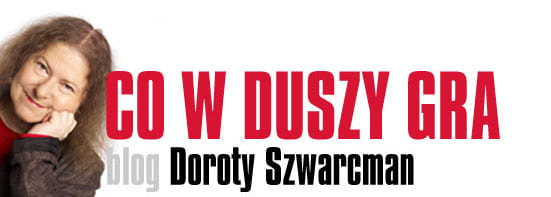 According to Ms. Szwarcman, Mr. Gauden’s decision was made without consultation with the representatives of Poland’s musical circles, and came down after longstanding attempts by Ruch Muzyczny’s editorial board to engage Mr. Gauden in a substantive discourse about the magazine’s future. The most recent Editor-in-Chief, Mr. Olgierd Pisarenko, is now close to retirement and, allegedly, in poor health. He was let go by Mr. Gauden on May 29. His replacement, Tomasz Cyz, was scheduled to begin in his new post on June 1 and resign his old position at dwutygodnik.com and the National Audiovisual Institute. Mr. Gauden’s recent announcement regarding the editorial leadership of Ruch Muzyczny triggered Ms. Szwarcman’s sharp reaction in her Polityka.pl blog, “Co w duszy gra” [The Playlist of the Soul].
According to Ms. Szwarcman, Mr. Gauden’s decision was made without consultation with the representatives of Poland’s musical circles, and came down after longstanding attempts by Ruch Muzyczny’s editorial board to engage Mr. Gauden in a substantive discourse about the magazine’s future. The most recent Editor-in-Chief, Mr. Olgierd Pisarenko, is now close to retirement and, allegedly, in poor health. He was let go by Mr. Gauden on May 29. His replacement, Tomasz Cyz, was scheduled to begin in his new post on June 1 and resign his old position at dwutygodnik.com and the National Audiovisual Institute. Mr. Gauden’s recent announcement regarding the editorial leadership of Ruch Muzyczny triggered Ms. Szwarcman’s sharp reaction in her Polityka.pl blog, “Co w duszy gra” [The Playlist of the Soul].
In her article, Ms. Szwarcman also raised a mordant point about Ruch Muzyczny’s new owners. Instytut Książki appears to be much less interested a patron for a traditional musical journal than the fairly recently created Instytut Muzyki i Tańca [The Music and Dance Institute], under whose auspices—according to Ms. Szwarcman—Ruch Muzyczny would likely receive a more favorable treatment. For many years already the financial state of Ruch Muzyczny has been quite precarious, with wages for the editorial staff being only adequate, while the contributing writers were on a “starvation” level of pay, according to one of the observations following Ms. Szwarcman’s article. Her take on the ownership question caused a flurry of comments addressing whether the Instytut Książki (the current owner)—or the Instytut Muzyki i Tańca (suggested future home for Ruch Muzyczny) would be the best guardian of the music journal’s future.
A few commentators agreed that the press run of 1500 copies makes Ruch Muzyczny a rather exclusive (“boutique”) publication, and much discussion by the online community that followed from this observation had centered on the gradual erosion of musical education and the resulting lack of readership. Arguments about profitability, improvements to the magazine’s online presence and other topics have caused much (occasionally vitriolic) back-and-forth among the online “commentariat,” whipping up an issue that is unlikely to be resolved soon.
While a top-down appointment of a new Editor-in-Chief seems rather high-handed and questions regarding his qualifications for the post that are floating around the blogosphere may never be resolved to the satisfaction of either side in the argument, some also pointed out that Mr. Cyz should not yet be presumed to be given a task of steering his ship into an iceberg. As a corollary to this argument, the ensuing debate has raised a much larger question of quality journalism. Fortunately, here Ruch Muzyczny can claim much credit for its scrupulous, scholarly reporting on worldwide events of interest, and proudly hold its long track record of bringing the rich and intricate world of Polish music to its devoted and often vocal readers.
To take a positive spin on the ace served by Ms. Szwarcman’s firm forehand is to conclude that the discussion of future ownership of Ruch Muzyczny and questions regarding its funding may be given a solid rethink and, after quite a lot is said and (maybe) done, it will lead to a generally accepted solution. For now, in the quick exchange of volleys of the first set, the lines of the argument were firmly drawn by both sides of the blogosphere. Clearly, the editorial changes at Ruch Muzyczny are only a prelude to a process of change that will ebb and flow for some time to come. In the meantime, Ms. Szwarcman’s passionate cri de coeur about a magazine, “…whose future is important to me, not only because I cooperated with it from the beginning of my professional career, and it was always a place where I could spread my wings….” is certainly worthy of note and follow-up, especially because it comes from such a trusted and distinguished source.
[Sources: szwarcman.blog.polityka.pl]
European Penderecki Centre For Music Now Open
After almost 2 years of construction, a ceremony inaugurating the activities of the European Krzysztof Penderecki Centre for Music in Lusławice was held on May 21, 2013. The inaugural gala featured violinist Anne-Sophie Mutter performing Mendelssohn’s Octet with Mutter’s Virtuosi Ensemble, as well as Camerata Silesia and the Lusławice Talents Orchestra and the Apollon Musagete Quartett. The ceremony was attended by Minister of Culture and National Heritage, Bogdan Zdrojewski.
 Construction of the Center was financed with 54.5 million zł from European OPI&E funds, which the Ministry of Culture and National Heritage assigned as an intermediary institution. Honorary patronage of the inaugural concert of the Lusławice Center is granted by: President of the Republic of Poland, Bronisław Komorowski, Minister Bogdan Zdrojewski and Marek Sowa – Marshall of the Małopolska Voivodeship.
Construction of the Center was financed with 54.5 million zł from European OPI&E funds, which the Ministry of Culture and National Heritage assigned as an intermediary institution. Honorary patronage of the inaugural concert of the Lusławice Center is granted by: President of the Republic of Poland, Bronisław Komorowski, Minister Bogdan Zdrojewski and Marek Sowa – Marshall of the Małopolska Voivodeship.
[Sources: pwm.com.pl, penderecki-center.pl]
Blank Pages Of Music
In this year’s 3rd edition of its “Blank Pages of Music” program, the Poland’s Institute of Music and Dance (IMiT) addresses Polish and foreign researchers who want to carry out scientific research on neglected and overlooked areas of Polish music or dance in Poland and abroad. As the research areas were extended to include Polish dance and dance in Poland for this year’s third edition, there will be particular focus on projects involving aspects of dance.
 In order to receive funding from IMiT, subjects must be declared to the Institute directly by the researchers applying to the program and the effects of their work (musicological works, catalogues of artistic works, databases, reconstructed compositions, sources studies, etc.) will be transmitted to the Institute for further publication. Readiness to take part in the program should be declared to the Institute directly by the researcher or the group of researchers (maximum: 3 people). Initiated by Andrzej Kosowski – Director of IMiT and Joanna Szymajda – Deputy Director of IMiT, the budget for this program is 100,000 PLN.
In order to receive funding from IMiT, subjects must be declared to the Institute directly by the researchers applying to the program and the effects of their work (musicological works, catalogues of artistic works, databases, reconstructed compositions, sources studies, etc.) will be transmitted to the Institute for further publication. Readiness to take part in the program should be declared to the Institute directly by the researcher or the group of researchers (maximum: 3 people). Initiated by Andrzej Kosowski – Director of IMiT and Joanna Szymajda – Deputy Director of IMiT, the budget for this program is 100,000 PLN.
The deadline for submission of applications is 30 June 2013 and the deadline for submission of works (research outputs) is 30 July 2014. Applications must be sent by e-mail (imit@imit.org) or post (Instytut Muzyki i Tańca, ul. Fredry 8, 00-097 Warsaw, Poland) with a note: Application for the Program “Blank Pages of Music” (date as postmarked). For details, visit imit.org.pl.
[Sources: press release, imit.org.pl]
Synthetis 2013: Int’l Course For Composers
 Thanks to the endeavours of Professor Zygmunt Krauze, the International Summer Course for Composers in Radziejowice has been reactivated, under the auspices of the Fundacja Ogrody Muzyczne [Musical Gardens Foundation], founded by Ryszard Kubiak and Krauze himself. Using the name SYNTHETIS, from the Greek word meaning ‘composer,’ the 2013 Course will explore the topic of computer technology in music from August 13-28 in the Pałac Radziejowice.
Thanks to the endeavours of Professor Zygmunt Krauze, the International Summer Course for Composers in Radziejowice has been reactivated, under the auspices of the Fundacja Ogrody Muzyczne [Musical Gardens Foundation], founded by Ryszard Kubiak and Krauze himself. Using the name SYNTHETIS, from the Greek word meaning ‘composer,’ the 2013 Course will explore the topic of computer technology in music from August 13-28 in the Pałac Radziejowice.
Deadline for applications: June 23, 2013.
Allowing each participant to develop their artistic skills and raise their qualifications is the key objective of the Course. For this reason the organizers have decided to put special emphasis on personal interaction between the student and the tutor. We would like to show how important it is to have actual personal contact with the most acclaimed minds in the field of music in the era of the global village and electronic communication, therefore we are offering the participants one-to-one lessons. What is more, thanks to the close and intimate environment of the venue, the participants and tutors will be able to interact freely outside of the seminar schedule. In this way organizers hope to create a highly cooperative environment and a creativity-enhancing atmosphere.
Confronting a newly composed piece of music with contrasting worldviews, foreign cultures, and life experiences is a highly significant ingredient of the composition process. This is why maintaining the international character of the Course and facilitating intercultural exchange among people from various countries and continents are particularly important. All participants are invited to become acquainted with diverse value systems and ways of experiencing and understanding music. While it is clear that all activities must relate to its aesthetic and creative aspects, in this year’s Course, a considerable part of the curriculum to the use of advanced computer techniques in the composing process.
The International Summer Course for Composers in Radziejowice is open to composers under 35 years of age who have a minimum of a bachelor’s degree (or equivalent title) in composition. Prominent lecturers for 2013 are: Miguel Azguime, Cezary Duchnowski, Zygmunt Krauze, Mauro Lanza, Mauricio Sotelo, Frances-Marie Uitti, Chen Yi and Agata Zubel. Deadline for applications: June 23, 2013.
For information about the application, fees and lectures, visit www.synthetis.pl.
[Sources : polmic.pl, synthetis.pl]
Poles With Guts!
Polacy z werwą [Poles with Guts] is a referendum that presents 21 young trend-setters in such diverse fields as science, medicine, environmental protection, business innovation, culture, art, music, design and sport. Organized by PKN Orlen, the ballot will run from May 1 until September 20. Each of the above-listed categories has its own group of jurors, including such well-known names as Jacek Bożek, Professor Zbigniew Gaclong, Professor Magdalena Fikus, Tomasz Majewski, Leszek Możdżer, Tomasz Sielicki and Tomasz Sadurski. In total, the jury pool includes 41 members. The juries will select 3 candidates from each category and then they will be voted upon via the internet by the general public in Poland. The highest prize is a 50,000 PLN [ca. $16,000] grant for further development of the recipient’s artistic, professional or sport-related career.
 One of this year’s nominees is Wojtek Blecharz, the PMC‘s Ambassador-at-Large for the young generation of Polish composers who is currently finishing his doctoral studies in composition at UC San Diego. He has received numerous commissions and has written a number of highly-praised works for a variety of ensembles. Laureate of the 2007 Tadeusz Baird Competition, Wojtek has also received grants and scholarships from the Ministry of Culture and National Heritage, ZAIKS Authors’ Rights Society, and Academie Musicale de Villecroze, among others. In 2012 Wojtek was nominated for the Polityka Passport Award in the classical music category.
One of this year’s nominees is Wojtek Blecharz, the PMC‘s Ambassador-at-Large for the young generation of Polish composers who is currently finishing his doctoral studies in composition at UC San Diego. He has received numerous commissions and has written a number of highly-praised works for a variety of ensembles. Laureate of the 2007 Tadeusz Baird Competition, Wojtek has also received grants and scholarships from the Ministry of Culture and National Heritage, ZAIKS Authors’ Rights Society, and Academie Musicale de Villecroze, among others. In 2012 Wojtek was nominated for the Polityka Passport Award in the classical music category.
Vote for your favorites at www.polacyzwerwa.pl/kandydaci.
[Sources: facebook.com, polacyzwerwa.pl]
Szmytka In Biweekly
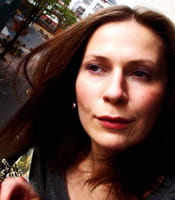 Fresh off of the premiere of her opera dla głosów i rąk [for voices and hands] at the Teatr Wielki in Warsaw as a part of The ‘P’ Project, composer Jagoda Szmytka has been featured in the English-language version of Poland’s bi-weekly cultural review, Dwutygodnik. Written by Monika Pasiecznik, the article explores the synesthetic aspects of Szmytka’s compositional process. Below is an excerpt:
Fresh off of the premiere of her opera dla głosów i rąk [for voices and hands] at the Teatr Wielki in Warsaw as a part of The ‘P’ Project, composer Jagoda Szmytka has been featured in the English-language version of Poland’s bi-weekly cultural review, Dwutygodnik. Written by Monika Pasiecznik, the article explores the synesthetic aspects of Szmytka’s compositional process. Below is an excerpt:
The Western order of the senses is not justified by any objective state of affairs. The senses, after all, can be honed; technology itself has had a noticeable reorganizing effect on our perception, while art continues to put our senses to the test. The arbitrariness of the boundaries and our irresistible compulsion to differentiate is demonstrated by the evolution of particular artistic disciplines: in the history of aesthetics, the distinctions between painting, music, and literature have shifted time and time again.
One contemporary artist that challenges us with this problem is Jagoda Szmytka. Her intellectual, aesthetic, and sensual experiences are myriad. In her work, she employs a variety of media and material, building layered and rhizomatic semantic-aesthetic fields. She does not discern between sound and image, philosophical idea and touch. This places her among the likes of Skriabin, Schönberg, Messiaen, Stockhausen, to name but a handful of composers who displayed synesthetic predispositions. Synesthesia was unfathomable to Descartes, who established the primacy of the eye and word (writing) in Western culture. Colour, sound, touch, movement, and thought: all of these were thought to be mutually contradictory.
“Sound is (for) more than the ear — it is also for the body, for the eye, and for thinking.”
Read the entire article by Monika Pasiecznik at biweekly.pl.
[Source: biweekly.pl]
Górecki’s Music At Wiesbaden Ballet
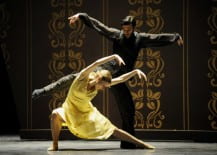 The world premiere of the new work by choreographer Stephan Thoss and music director Wolfgang Ott, entitled Blaubarts Geheimnis [Bluebeard’s Secret], will take place in June. The ballet features Henryk Mikołaj Górecki’s Kleines Requiem fur eine Polka. Below is an excerpt from the event website:
The world premiere of the new work by choreographer Stephan Thoss and music director Wolfgang Ott, entitled Blaubarts Geheimnis [Bluebeard’s Secret], will take place in June. The ballet features Henryk Mikołaj Górecki’s Kleines Requiem fur eine Polka. Below is an excerpt from the event website:
Edgar Allan Poe’s mystery tales, the impossible worlds created by the painter and graphic artist M.C. Escher and themes from the stories of King Bluebeard are the sources of Stephan Thoss’ inspiration for the new ballet production.
The oppressive atmosphere by the American author Edgar Allan Poe is somehow reflected in the opus of the Polish composer Henryk Górecki. His music is also characterized by serial structures similar to those found in the famous images by M.C. Escher.
The choreography is focused on the puzzling story of the knight Bluebeard, who keeps his dark past concealed behind the closed doors of his castle. He reacts with growing mistrust on threats to his emotional world. Bluebeard is frequently described as a living fortification that is kept closed in seven rooms with locked doors. These rooms represent the soul and consciousness of a male ego that refuses to allow itself to be penetrated by light or love.
After the premiere of the work is performed by members of the Ballett des Hessischen at the National Theater in Wiesbaden, Germany, on June 9 it will go to the Volksoper in Vienna, Austria where it will be performed by members of the Wiener Staatsballett.
June 9, 2013 | 6:00 pm
Blaubarts Geheimnis with music by H.M. Górecki – Ballett des Hessischen
Staatstheater – Großes Haus
Darmstadt, Germany
June 10, 20 & 24 | 7:00 pm
Blaubarts Geheimnis with music by H.M. Górecki – Wiener Staatsballett
Volksoper
Vienna, Austria
[Source: boosey.com]
Anderszewski Plays Szymanowski In Berlin
In June, both Polish-Hungarian pianist Piotr Anderszewski and Canadian conductor Yannick Nézet-Séguin will make their debut with the Berlin Staatskapelle, performing two concerts in Berlin. Anderszewski’s repertoire for these performances is Mozart: Piano Concerto No 23 in A major, K488 and Szymanowski: Symphonie Concertante for piano and orchestra, Op. 60. For more information, visit Information: www.staatsoperberlin.de
June 26, 2013 | 8:00 p.m.
Anderszewski with the Berlin Staatskapelle
Berlin Philharmonic
Herbert-von-Karajan-Str. 1, Berlin, Germany
June 27, 2013 | 8:00 p.m.
Anderszewski with the Berlin Staatskapelle
Konzerthaus Berlin
Gendarmenmarkt , 10117 Berlin, Germany
[Source: anderszewski.net]
Łowiczanie at S.F. Ethnic Dance Festival
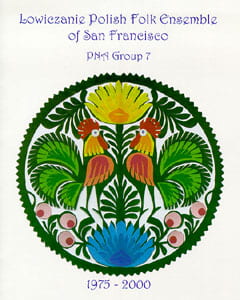 The Łowiczanie Polish Folk Ensemble will perform in the 35th Anniversary San Francisco Ethnic Dance Festival on June 29 and 30 at Yerba Buena Center’s Lam Theater in San Francisco. This year’s Festival features 35 extraordinary dance companies in a series of thrilling and inspiring performances honoring cultural legacies and highlighting the vibrancy of the Bay Area’s world dance community.
The Łowiczanie Polish Folk Ensemble will perform in the 35th Anniversary San Francisco Ethnic Dance Festival on June 29 and 30 at Yerba Buena Center’s Lam Theater in San Francisco. This year’s Festival features 35 extraordinary dance companies in a series of thrilling and inspiring performances honoring cultural legacies and highlighting the vibrancy of the Bay Area’s world dance community.
Folk culture is alive in the high Beskid Mountains of Poland! Accompanied by traditional fiddles and shepherd’s pipes—and decked out in their embroidered finest—sixteen dancers present mountain songs and dances as Łowiczanie entertains with greeting marches, twirling couples, acrobatics, and some astonishingly rhythmic push-ups.
For tickets and a full performance schedule, visit www.sfethnicdancefestival.org
Saturday, June 29 | 2pm and 8pm
Sunday, June 30 | 2pm
Łowiczanie Ensemble at San Francisco Ethnic Dance Festival
Yerba Buena Center – Lam Theater
701 Mission St., San Francisco, CA 94103
Tickets: $18 – $58 @ tickets.ybca.org. (Subscriber discounts are available when purchasing tickets to three separate performances; group discounts for 20 or more are available; kids 12 and under receive half-price admission for all Saturday matinees.)
Lutosławski Year 2013
Sir Rattle Wins Lutosławski Year Medal
On 20 April 2013 after the last concert of Berliner Philharmoniker’s series celebrating the centenary of Witold Lustosławki’s birth, Music Director Sir Simon Rattle received the Lutosławski Year Medal. The event was co-organized by the Polish Embassy in Berlin.
 The Medals, prepared by the Witold Lustosławki Society in association with the Institute of Music and Dance to celebrate the composer’s anniversary, are awarded to prominent figures who have made an outstanding contribution to promoting the music of Witold Lutosławski and disseminating information about the composer, as well as his family relations, friends, and those involved in his artistic work or public activity.
The Medals, prepared by the Witold Lustosławki Society in association with the Institute of Music and Dance to celebrate the composer’s anniversary, are awarded to prominent figures who have made an outstanding contribution to promoting the music of Witold Lutosławski and disseminating information about the composer, as well as his family relations, friends, and those involved in his artistic work or public activity.
To date, the Medals have been awarded to Lutosławski’s relations, friends, work associates, and to prominent authors of monographs: Gabriela and Marcin Bogusławscy; Irina Nikolska; Danuta Gwizdalanka; Martina Homma; Krystyna Witkowska; Michał Bristiger; Jan Krenz; Krzysztof Meyer; Charles Bodman Rae; James Rushton; Zbigniew Skowron; Steven Stucky; Adrian Thomas; Mieczysław Tomaszewski; Anne-Sophie Mutter; Antoni Wit; Kazimierz Michalik; Andrzej Bauer; Bogdan Pałosz; and Roman Jabłoński.
The Berliner Philharmoniker has celebrated the Lutosławski Year with a series of concerts devoted to the Polish composer’s oeuvre. The series has included the following works by Lutosławski : Concerto for Orchestra (February 7-9, 2013), conductor: Manfred Honeck; Piano Concerto (February 14-16), piano: Krystian Zimerman, conductor: Simon Rattle; Cello Concerto (February 20-22), cello: Miklós Perényi, conductor: Simon Rattle; Preludes and Fugue (April 13), conductor: Simon Rattle;
Double Concerto for Oboe, Harp, and Strings (April 18-20), oboe: Jonathan Kelly, harp: Marie-Pierre Langlament, conductor: Simon Rattle.
[Source: lutoslawski.culture.pl, berlin.msz.gov.pl, lutoslawski.org.pl]
Lutosławski for Children
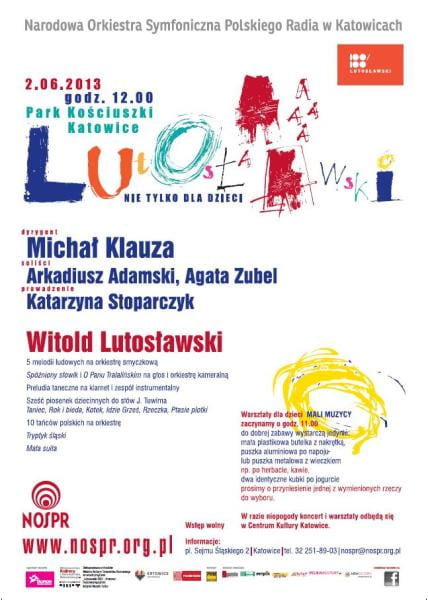 On June 2, the Polish National Radio Symphony Orchestra [NOSPR] in Katowice organized a concert entitled “Lutosławski, Not Only for Children,” which was held at the Kościuszko Park in Katowice. The program included Lutosławski’s works inspired by folk music (Tryptyk śląski, Five Folk Melodies for String Orchestra, Preludia taneczne, Mała suita) as well as Lutosławski’s song settings of children’s poems written by one of the best-known Polish poets of the 20th century, Julian Tuwim (1894-1953). The concert was led by Maestro Michał Klauza and the soloists included Agata Zubel (voice) and Arkadiusz Adamski (clarinet).
On June 2, the Polish National Radio Symphony Orchestra [NOSPR] in Katowice organized a concert entitled “Lutosławski, Not Only for Children,” which was held at the Kościuszko Park in Katowice. The program included Lutosławski’s works inspired by folk music (Tryptyk śląski, Five Folk Melodies for String Orchestra, Preludia taneczne, Mała suita) as well as Lutosławski’s song settings of children’s poems written by one of the best-known Polish poets of the 20th century, Julian Tuwim (1894-1953). The concert was led by Maestro Michał Klauza and the soloists included Agata Zubel (voice) and Arkadiusz Adamski (clarinet).
 Workshops for young musicians were held before the concert, with such activities as building of small musical instruments from everyday objects (such as bottles, cans, and other used items), and learning to sing one of the most popular songs, “Idzie Grześ przez wieś” [Greg Walks Across the Village].
Workshops for young musicians were held before the concert, with such activities as building of small musical instruments from everyday objects (such as bottles, cans, and other used items), and learning to sing one of the most popular songs, “Idzie Grześ przez wieś” [Greg Walks Across the Village].
Two more June concerts highlighting Lutosławski’s works for children will be held in Poland—on June 6 in Poznań and on June 10 in Kielce. These concerts are presented by vocalist Dorota Miśkiewicz and the Kwadrofonik Ensemble (right) and feature new vocal-instrumental arrangements of Lutosławski’s charming Tuwim songs. The concerts will also include lectures on Lutosławski and Tuwim and their influence on teaching children.
In conjunction with these events, PWM Editions has created a web page (www.lutoslawskidzieciom.pl) with information and resources for students and teachers. In the coming months, PMW will publish 14 volumes of songs for children by Lutosławski—the details will be listed under the “Publications” tab on the PWM website.
June 6, 2013 |5:30 pm
Lutosławski dla dzieci
Centrum Kultury Zamek
ul. Św. Marcin 80/82
61-809 Poznań, Poland
Info: www.biennaledladziecka.pl
June 10, 2013 | 11:00 am
Lutosławski dla dzieci
Filharmonia Świętokrzyska im. Oskara Kolberga
ul. Żeromskiego 12
25-369 Kielce, Poland
Info: filharmonia.kielce.com.pl
[Sources: pwm.com.pl, nospr.org.pl]
Lublin’s Lutofusions
 On June 8 and 9 the city of Lublin will host two highly original concerts, collectively entitled Lutofuzje [Lutofusions], which both straddle the worlds of classical and experimental pop avant-garde and pay homage to Witold Lutosławski during his centenary year. Young musicians, including Marcin Masecki (keyboards), Jerzy Rogiewicz (percussion), Tomasz Pokrzywiński (cello), Michał Górczyński (clarinet and saxophone), Marcin Lenarczyk (DJ), and a wind band from the Krasnystaw State School of Music, will use Lutosławski’s music in two alternative-experience presentations: 8 czerwca, godz. 21:00 – “V/TOLD Radical Dance Experience” on June 8 and “V/TOLD Concert Ensemble” on June 9. The June 8 event will be held at the Club Dom Kultury, beginning at 9 p.m. with a warm-up act by DJ Papa Zura and followed by the main concert at midnight. The “V/TOLD Concert Ensemble” evening will be held at the new Media & Artistic Incubator at the Maria Curie-Skłodowska University (UMCS) and broadcast live via the online portal of the Witold Lutosławski Society, www.lutoslawski.org.pl.
On June 8 and 9 the city of Lublin will host two highly original concerts, collectively entitled Lutofuzje [Lutofusions], which both straddle the worlds of classical and experimental pop avant-garde and pay homage to Witold Lutosławski during his centenary year. Young musicians, including Marcin Masecki (keyboards), Jerzy Rogiewicz (percussion), Tomasz Pokrzywiński (cello), Michał Górczyński (clarinet and saxophone), Marcin Lenarczyk (DJ), and a wind band from the Krasnystaw State School of Music, will use Lutosławski’s music in two alternative-experience presentations: 8 czerwca, godz. 21:00 – “V/TOLD Radical Dance Experience” on June 8 and “V/TOLD Concert Ensemble” on June 9. The June 8 event will be held at the Club Dom Kultury, beginning at 9 p.m. with a warm-up act by DJ Papa Zura and followed by the main concert at midnight. The “V/TOLD Concert Ensemble” evening will be held at the new Media & Artistic Incubator at the Maria Curie-Skłodowska University (UMCS) and broadcast live via the online portal of the Witold Lutosławski Society, www.lutoslawski.org.pl.
This project links the artistic circles of Lublin with those of the capital city of Warsaw and is part of the Lutosławski Year celebrations, financed by the Institute of Music and Dance and the Ministry of Culture and National Heritage.
June 8, 2013 | 9:00 pm/midnight
V/TOLD Radical Dance Experience
Klub Dom Kultury
ul. Krakowskie Przedmieście 19, Lublin, Poland
Info: imit.org.pl
June 9, 2013 | 5:00 pm
V/TOLD Concert Ensemble
Inkubator medialno-artystyczny – UMCS Chatka Żaka
ul. Idziego Radziszewskiego 16, Lublin, Poland
Info: imit.org.pl
[Source: imit.org.pl]
Cracow Duo Take Lutosławski To The Caucasus
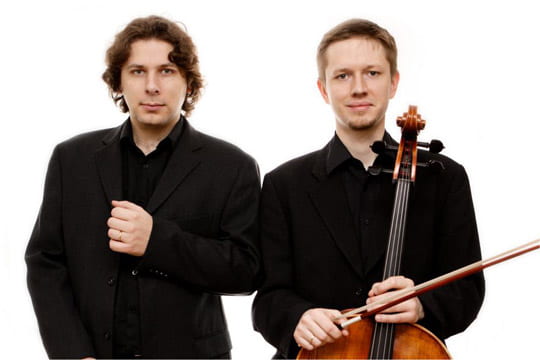 In April and May, music by Lutosławski and several other great Polish composers was performed in the Caucasus. The series of concerts, lectures and seminars marked 100th anniversary of Lutosławski’s birth in Georgia, Armenia and Azerbaijan was a joint initiative of the Polish Embassies at Tbilisi, Baku and Erevan. The concerts were performed by the Cracow Duo—comprised of Marek Szlezer (piano) and Jan Kalinowski (cello), who are professors at the Cracow Music Academy. In Baku and Tbilisi the Head of the Cracow Composer’s Union, Jerzy Stankiewicz, conducted lectures about the life and work of the great Polish innovator composer from the past century.
In April and May, music by Lutosławski and several other great Polish composers was performed in the Caucasus. The series of concerts, lectures and seminars marked 100th anniversary of Lutosławski’s birth in Georgia, Armenia and Azerbaijan was a joint initiative of the Polish Embassies at Tbilisi, Baku and Erevan. The concerts were performed by the Cracow Duo—comprised of Marek Szlezer (piano) and Jan Kalinowski (cello), who are professors at the Cracow Music Academy. In Baku and Tbilisi the Head of the Cracow Composer’s Union, Jerzy Stankiewicz, conducted lectures about the life and work of the great Polish innovator composer from the past century.
The tour started in Baku, where Cracow Duo and the Baku Symphonic Orchestra performed music by Lutosławski and Penderecki , as well as Alfred Schnittke and Astor Piazzolla. Another concert was held at the Museum of Rostropowicz followed by the lecture by professor Stankiewicz at the Azerbaijan Composers’ Union. Then they moved to Tbilisi with the performance and workshops at the State Conservatoire. The last stop was Erevan, where musicians played a highly acclaimed concert at the Komitas Chamber Music Hall.
[Sources: tbilisi.mfa.gov.pl, http://www.cracowduo.com/]
Royal String Qtet Performs Poland’s Musical Giants In Spain
An article by Filip Lech, translated by Paulina Schlosser, posted on culture.pl on April 23, 2013:
Thus far, the year 2013 has proved a year of extraordinary anniversaries. 100 years have passed since the birth of Lutosławski, a composer who transformed the identity of Polish music forever. Górecki, composer of the iconic Symphony No. 3, who passed away in 2010, would have been 80 years old. Penderecki, one the world’s most acclaimed composers and Poland’s greatest living one, is turning 80 this year. In honor of these anniversaries, one of Poland’s premiere string ensembles presented the works of three Polish musical greats: Witold Lutosławski, Henryk Mikołaj Górecki and Krzysztof Penderecki.
The Royal String Quartet presented the works by these three great composers in Seville, Spain. The ensemble has travelled to festivals from the BBC Proms to Sacrum Profanum in Kraków. They have performed for Queen Elizabeth, and since 2012 they are a resident quartet at Queen’s University in Belfast. Paweł Szymański, Wojtek Blechacz and Andrzej Kwieciński have all written compositions especially for the ensemble.
Spanish concertgoers are provided with the opportunity to hear Lutosławski’s String Quartet, written in 1964. It is a piece he called a “great closed form”, and it is made up of two parts. The first was described by the composer as “engaging”, and the second as “fulfilling”, with the four instruments played furioso, in the highest registers.
The oeuvre of Górecki is represented in Seville by his first string quartet, Już się zmierzcha / It Is Dusk, from 1988. Górecki attempted to render with the language of music the atmosphere of falling darkness, and the quiet of night that follows a day’s noise. In the score, he evoked a quote from the 17th-century chant by Wacław of Szamotuły, Modlitwa gdy dziatki spać idą / A Prayer When the Children Go to Sleep.
The third string quartet by Krzysztof Penderecki, composed in 2008 and the final work on the RSQ programme in Spain, is also filled with musical quotes. Penderecki revealed that “While composing the quartet, I remembered a melody that I frequently heard from my father, and I used this theme which expanded and grew in subsequent variations and nearly took over my piece”. The title of this piece is Kartki z nienapisanego dziennika / Pages from an Unwritten Diary, and it is an autobiographical journey into the composer’s childhood.
[Source: culture.pl]
Awards
Marcin Stańczyk Triumphs In Japan
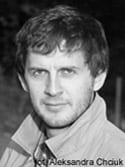 The Toru Takemitsu Award is the biggest and most prestigious award for composers in Japan, given annually since 1997. Sighs – Hommage à Fryderyk Chopin by Marcin Stańczyk (Poland) was declared this year’s Takemitsu Competition winner during the Competition’s final concert on May 26, 2013. The final concert was held in the Tokyo Opera City Concert Hall’s Takemitsu Memorial and performed by the Tokyo Philharmonic Orchestra with Toshiyuki Kudo, conductor. The First Prize Award comes with a 1 million Yen check.
The Toru Takemitsu Award is the biggest and most prestigious award for composers in Japan, given annually since 1997. Sighs – Hommage à Fryderyk Chopin by Marcin Stańczyk (Poland) was declared this year’s Takemitsu Competition winner during the Competition’s final concert on May 26, 2013. The final concert was held in the Tokyo Opera City Concert Hall’s Takemitsu Memorial and performed by the Tokyo Philharmonic Orchestra with Toshiyuki Kudo, conductor. The First Prize Award comes with a 1 million Yen check.
This year’s field was quite competitive, with 97 entries from 20 countries across the world. The Second Prize was awarded to The Lark in Snow by Sumio Kobayashi (Japan), and the two Third Prizes went to Zwei Landschaftsbilder by Huan Liu (China) and “CLOSE” to you to “OPEN” by Nana Kamiyama (Japan). A noted British composer, Sir Harrison Birtwistle, was a sole juror for this year’s Competition. Read Sir Birtwistle’s extensive comments on the competition and the winners at the Competition website at www.operacity.jp.
Born in Łęczyca, Poland in 1977, Marcin Stańczyk graduated from the Academy of Music in Łódź, where he studied composition under Zygmunt Krauze, and from the Faculty of Law at the University of Łódź. He also completed postgraduate studies at the Accademia Nazionale di Santa Cecilia in Rome under Ivan Fedele. He supplemented his education within CURSUS 1 at IRCAM in Paris. He has received various prizes and scholarships and was recognized by different institutions including IMD Darmstadt, Reading Panel IRCAM, Royaumont, Jerwood, Laurentscantorij and Witold Lutosławski Foundations. Currently he is working on commissions from the Polish government and Sinfonia Varsovia as well as the Warsaw National Opera for season 2013/2014.
[Sources: polmic.pl, operacity.jp]
Jazz Musikpreis For Bałdych
 Polish violinist and composer Adam Bałdych received the 2013 ECHO Jazz Musikpreis at a ceremony in Hamburg on May 23, 2013. The award, given by the Deutsche Phono-Akademie, an equivalent of the Recording Academy in the United States, is the most important award on the German music scene. Artists from all across the world compete in 30 categories including Album, Group, Instrumental Performer of the Year, Best Concert Performance, Best Debut, or Bestselling Album, among others.
Polish violinist and composer Adam Bałdych received the 2013 ECHO Jazz Musikpreis at a ceremony in Hamburg on May 23, 2013. The award, given by the Deutsche Phono-Akademie, an equivalent of the Recording Academy in the United States, is the most important award on the German music scene. Artists from all across the world compete in 30 categories including Album, Group, Instrumental Performer of the Year, Best Concert Performance, Best Debut, or Bestselling Album, among others.
Bałdych’s award in the International Artist of the Year/Violin category also came with recognition for the German ACT Recording Company that represents him and was honored in the Best Enterprise of the Year Award. At the gala concert with the award presentation ceremony, Bałdych was featured in a performance of Blaue Augen with the ECHO Jazz-Allstars ensemble.
[Source: meakultura.pl]
Doctor Honoris Causa For Krauze
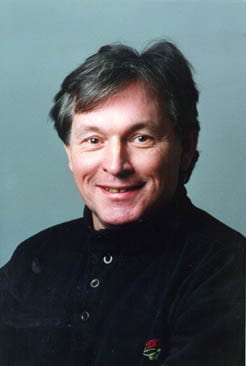 The National University of Music in Bucharest has awarded composer Zygmunt Krauze the title of Doctor Honoris Causa, for his “unique body of musical work, and for all activity as a composer, pianist and mentor.” The ceremony took place on Friday, May 31, 2013.
The National University of Music in Bucharest has awarded composer Zygmunt Krauze the title of Doctor Honoris Causa, for his “unique body of musical work, and for all activity as a composer, pianist and mentor.” The ceremony took place on Friday, May 31, 2013.
On the same day, Zygmunt Krauze performed his Piano Concerto with the Romanian Radio Orchestra and conductor Tiberiu Soare. The concert took place in the Radio Hall in Bucharest, within the framework of the International Week of New Music.
[Source: polmic.pl]
Grammy for WIT/NAXOS/CD Accord
Penderecki: Fonogrammi; Horn Concerto; Partita; The Awakening Of Jacob; Anaklasis; De natura sonoris No 1.
Urszula Janik, Jennifer Montone, Elżbieta Stefańska, Michał Pindakiewicz, Konrad Kubicki, Barbara Witkowska, Jerzy Cembrzyński, Warsaw Philharmonic Orchestra, and Antoni Wit – cond.
Naxos
8.572482
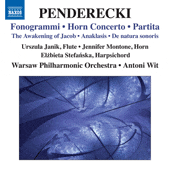 The music industry paid tribute to its finest at the 55th Annual GRAMMY® Awards in Los Angeles on February 10, 2013. During the ceremony, the 2013 Grammy Award for Best Classical Compendium was awarded to conductor Antoni Wit and sound directors of CD Accord, Alexander Nagórko and Andrzej Sasin, for their recording of works by Penderecki. Released by Naxos, the winning album contains works by Krzysztof Penderecki performed by the Warsaw Philharmonic Orchestra. Soloists are Urszula Janik, Jennifer Montone, Elżbieta Stefańska, Michał Pindakiewicz, Konrad Kubicki, Barbara Witkowska and Jerzy Cembrzyński.
The music industry paid tribute to its finest at the 55th Annual GRAMMY® Awards in Los Angeles on February 10, 2013. During the ceremony, the 2013 Grammy Award for Best Classical Compendium was awarded to conductor Antoni Wit and sound directors of CD Accord, Alexander Nagórko and Andrzej Sasin, for their recording of works by Penderecki. Released by Naxos, the winning album contains works by Krzysztof Penderecki performed by the Warsaw Philharmonic Orchestra. Soloists are Urszula Janik, Jennifer Montone, Elżbieta Stefańska, Michał Pindakiewicz, Konrad Kubicki, Barbara Witkowska and Jerzy Cembrzyński.
Each of the six orchestral works on this album bears the imprint of Penderecki’s greatness as a composer. Fonogrammi alternates piquant sonorities, pulsating vehemence and moments of great intimacy. Intensity accompanied by neo-Romantic elements can be heard in The Awakening of Jacob whilst Anaklasis is a stunning example of juxtaposed, multiple sound patterns. De natura sonoris I explores more improvisational, jazz-influenced areas, as does the richly orchestrated Partita. The Horn Concerto, composed in 2008, offers an evocative landscape, glacial, powerful, yet wistful.
[Sources: cdaccord.com.pl, naxos.com]
Winners Of The Magin Piano Competition
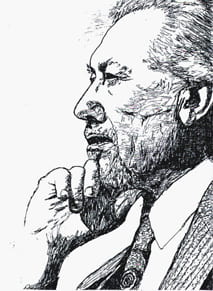 The 15th International Miłosz Magin Piano Competition was held in Paris March 18-23, 2013 with auditions at the Jaques Ibert Music Conservatory. The Competition was jointly sponsored by the City of Paris, Les Amis de la Musique Polonaise Society, the Ministry of Culture and Communication, and the Mayor of Paris, Bertrand Delanoë. About 50 contestants from all over the world were judged by an international jury led by Alexandre Bodak (France). The Jury decided not to give any awards in the highest category, “Concertiste, ” nor was 1st Place in the next category, “Superieur,” awarded. The 2nd Place Medal in the “Superieur” category went to a French pianist, Marie-Lucie Renaud, and the 3rd Place Medal to an American pianist, Benjamin Harlan Hiramoto. Distinctions were also given to Zuzanna Barylska of Poland (1st Place) and Unubileg Batjargal of Mongolia and Justine Daisy Espino of the US (2nd Place ex-aequo) in the “Elémentaire” category.
The 15th International Miłosz Magin Piano Competition was held in Paris March 18-23, 2013 with auditions at the Jaques Ibert Music Conservatory. The Competition was jointly sponsored by the City of Paris, Les Amis de la Musique Polonaise Society, the Ministry of Culture and Communication, and the Mayor of Paris, Bertrand Delanoë. About 50 contestants from all over the world were judged by an international jury led by Alexandre Bodak (France). The Jury decided not to give any awards in the highest category, “Concertiste, ” nor was 1st Place in the next category, “Superieur,” awarded. The 2nd Place Medal in the “Superieur” category went to a French pianist, Marie-Lucie Renaud, and the 3rd Place Medal to an American pianist, Benjamin Harlan Hiramoto. Distinctions were also given to Zuzanna Barylska of Poland (1st Place) and Unubileg Batjargal of Mongolia and Justine Daisy Espino of the US (2nd Place ex-aequo) in the “Elémentaire” category.
The inaugural concert was held at the opulent Napoleon III era Salle des Fêtes, a centerpiece of the elegant building housing the City Hall of Paris’s 19th Arrondissement and led by Aleksandra Magin, the composer’s granddaughter. Pianist Oliwia Różańska presented a program of works by Chopin, Magin, Paderewski, and Zarębski. Magin’s Prelude Op. 3, dating from the 1950s, received its world premiere at that concert, following its recent discovery in the archives of the well-known Polish pianist, Barbara Hesse-Bukowska.
The Competition winners presented music by Chopin, Debussy, Magin and Poulenc during a closing concert, also held at the City Hall, and sponsored by His Excellency Krzysztof Kocel, Ambassador of the Republic of Poland in France, and the Polish permanent representatives to the UNESCO.
The next edition of the International Magin Piano Competition will be held in Poland in March of 2015.
[Sources: polmic.pl, concours-milosz-magin.org]
Kiepura Musical Theater Award
On May 16, the annual Jan Kiepura Musical Theater Awards [Teatralna Nagroda Muzyczna im. Jana Kiepury] were presented at the Mazowiecki Musical Theater in Warsaw. For the seventh time, award statuettes were handed out to musical theater artists in 12 categories including: best musical, singers, dancers, director and conductor, and stage designers, among others. Below are the 2013 laureates:
Lifetime Achievement:
Krystyna Mazurówna
Best Musical:
Korczak – Podlasie Opera and Philharmonic
Best Director:
Andrzej Chyra – Opera Bałtycka in Gdansk
Best Female Vocalist (tie):
Anna Sroka-Hryń – Mazowiecki Musical Theater,
Iwona Socha – Opera Krakowska
Best Male Vocalist (tie):
Mariusz Kwiecień – Opera Krakowska,
Jan Jakub Monowid – Warsaw Opera Kameralna
Best Female Vocal Debut:
Justyna Dyla – Opera Sląsk in Bytom
Best Male Vocal Debut:
Paweł Konik – Opera Bałtycka in Gdańsk
Best Conductor:
Jacek Boniecki – Mazowiecki Musical Theater
Best Set/Costume Design:
Barbara Ptak – Gliwicki Musical Theater
Best Choreographer:
Artur Żymełka – Music Theatre in Łódź
Best Female Dancer:
Angelika Gembiak – Opera Nova in Bydgoszcz
Best Male Dancer (tie):
Mateusz Sierant – Grand Theater in Poznań,
Oskar Świtała – Music Theatre in Łódź
The lifetime achievement award was presented to choreographer and dancer Krystyna Mazurówna by Polish tenor Wiesław Ochman, whose international career includes The Metropolitan Opera. Ochman hosted the evening with Anna Matusiak. The 74-year old Mazurówna in accepting the award said “my career is not over, I still have much to create.” A former soloist with The Solistka Teatru Wielkiego w Warszawie.Grand Theatre in Warsaw, she now makes Paris her home.
New York City director-choreographer Staś Kmieć presented the award for “Best Choreographer.” American-born, Kmieć has directed and choreographed musicals, ballet, opera, concert dance and film in New York, Los Angeles, Chicago, Boston, Ireland, and for national tours in the United States. As a dancer he performed on Broadway, with star Rudolf Nureyev, Metropolitan Opera Ballet, The Boston Ballet, and The American Dancemachine. Recently, he was the Artistic Director of Ballet Western Reserve. Kmieć is on the voting committee for Broadway’s Tony Awards and is on the National Council of Actors’ Equity. He is a graduate of Tufts University and also the school of Polish dance at the University of Marie Curie-Sklodowska in Lublin.
It is the plan of the Włodzimierz Izban—General and Artistic Director of the Mazowiecki Music Theatre and creator of these Awards—to have Kmieć return in 2014 to choreograph and to establish the first training program of Broadway Musical Theater in Poland. The month-long symposium would encompass the classic American dance styles of Bob Fosse, Jerome Robbins, Jack Cole, and Agnes DeMille, along with vocal technique, acting and history. The goal is to enable Polish talent to become the triple threat of actor-singer-dancer, a coveted trait amongst Broadway performers.
“Along with new and original work, there has been a recent trend of presenting American musicals in Poland,” said Kmieć. “Having witnessed the talents of Polish artists through the performances of the musical Metro on Broadway, as well as national companies such as Mazowsze and Śląsk and the Roma Musical Theater in Warsaw, I am excited to bring our Broadway style to Poland.” Kmieć will travel to Minneapolis in July as a guest instructor of “performing technique and presence” at The Polish Folk Dance Association of the Americas’ 17th festival – marking the 30th anniversary of the organization.
[Sources: press release; image: mtmoperetka.pl]
Festivals
Leo Festival 2013
The fifth edition of the Leo Festival in Wrocław is held from June 1-6, 2013. This year’s concerts feature chamber music, literature, cabaret, choirs and string orchestra presentation. Radek Knapp, a bilingual Polish and German writer will read fragments of his latest work and his narration will be accompanied by the Festival’s hosts, the Leopldinum Orchestra, featuring Six Preludes for Strings by Jean Françaix and Octet by George Enescu.
The festival program will also include one of Bach’s Brandenburg Concertos paired with Charlie Chaplin’s Smile, and a world premiere of a short work by Tymoteusz Witczak, a young Wrocław-based composer. The second half of the concert (held at the Monopol Hotel) will feature the Leopoldinum Orchestra entertaining the audience on the hotel terrace with a cabaret-like piece, Cirque de violon.
Other concerts will feature Six Pieces by Alexandre Tansman and Peasant Songs by Andrzej Panufnik, as well as other accessible works by Frank Bridge, George Gershwin, Leo Delibes, and others.
[Source: polmic.pl]
Installations With Blecharz & Mykietyn
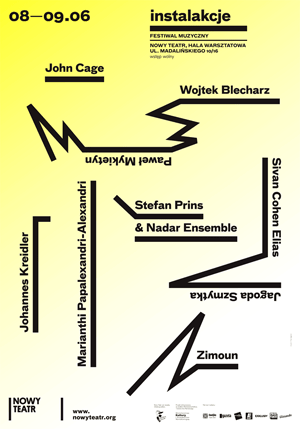 The Nowy Teatr [New Theater] in Warsaw will host the second edition of the Installations Music Festival from June 8-9, 2013. Curated by composers Wojtek Blecharz and Paweł Mykietyn, the concerts will present music and installations by such artists as Zimoun, Jagoda Szmytka, Johannes Kreidler, Sivan Cohen Elias, Marianthi Papalexandri-Alexandri, Stefan Prins & Nadar Ensemble and John Cage.
The Nowy Teatr [New Theater] in Warsaw will host the second edition of the Installations Music Festival from June 8-9, 2013. Curated by composers Wojtek Blecharz and Paweł Mykietyn, the concerts will present music and installations by such artists as Zimoun, Jagoda Szmytka, Johannes Kreidler, Sivan Cohen Elias, Marianthi Papalexandri-Alexandri, Stefan Prins & Nadar Ensemble and John Cage.
The concert space—a cavernous warehouse once owned by the Municipal Sanitation Company—is located in the residential Mokotów district of Warsaw. A cutting-edge experience for the audiences is guaranteed.
[Sources: polmic.pl]
Polish Violin Music
Aleksander Zarzycki: Mazurka in G major, Op. 26 (version for violin and piano), Mazurka in E major, Op. 39, Introduction et cracovienne, Op. 35, Andante et polonaise, Op. 23, and Romance in E major, Op. 16 (in versions for violin and piano); Zygmunt Noskowski: 3 Morceaux, Op. 24: No. 1. Chanson ancienne; Piotr Drożdżewski: 2 Caprices – No. 1 Lipinski and No. 2 Paganini; Henryk Mikołaj Górecki: Sonatina w jednej czesci (Sonatina in one movement), Op. 8, Variations, Op. 4, and Little Fantasia, Op. 73; Ignacy Jan Paderewski: Chanson; Witold Lutosławski: Recitative e arioso; Karol Lipiński: 2 Impromptus, Op. 34 – No. 1 Allegro energico and No. 2. Andante. Tempo di menuetto
Kinga Augustyn, violin and Efi Hackmey, piano
Naxos 9.70192
A new, all-Polish recording featuring violinist Kinga Augustyn and pianist Efi Hackmey— last year’s gala performers at the Paderewski Festival in Paso Robles, as pictured above—will be available for download online at Naxos and Classics Online as of June 1, 2013. The album is 80 minutes dedicated to the Polish violin tradition in all its fascinating variety. Many of the recordings are world premieres, and much of the repertoire is virtually unknown.
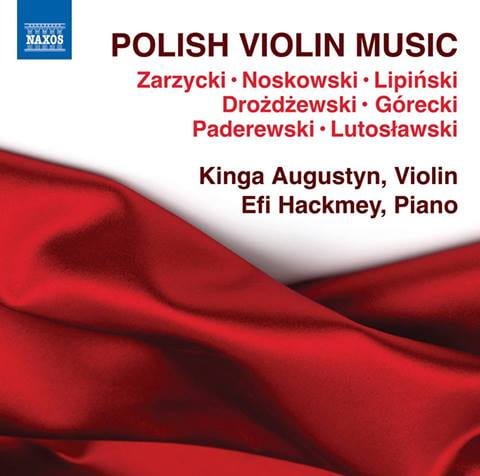 Lipiński’s virtuoso Impromptus are the ancestors of Drożdżewski’s showpiece solo Caprices, which have dedications both to Lipiński and Paganini. Zarzycki’s lyrically heartfelt works are emblematic of nineteenth-century romanticism, and both Górecki and Lutosławski are preeminent figures of the twentieth century whose finely crafted music resonates with audiences all over the world. Award-winning violinist Kinga Augustyn’s playing has been described as ‘stylish and vibrant’ (The Strad). She also appears on Naxos 8.559733 performing Kenneth Fuchs’s Falling Trio with Jeffrey Biegel’s Trio21 and cellist Robert DeMaine.
Lipiński’s virtuoso Impromptus are the ancestors of Drożdżewski’s showpiece solo Caprices, which have dedications both to Lipiński and Paganini. Zarzycki’s lyrically heartfelt works are emblematic of nineteenth-century romanticism, and both Górecki and Lutosławski are preeminent figures of the twentieth century whose finely crafted music resonates with audiences all over the world. Award-winning violinist Kinga Augustyn’s playing has been described as ‘stylish and vibrant’ (The Strad). She also appears on Naxos 8.559733 performing Kenneth Fuchs’s Falling Trio with Jeffrey Biegel’s Trio21 and cellist Robert DeMaine.
[Sources: facebook.com, naxos.com]
New Recording Of Szymanowska’s Complete Piano Works
 Maria Szymanowska: Complete Piano Works
Maria Szymanowska: Complete Piano Works
Maria Szymanowska (1789-1831): Six Menuets; Polonaise pour le pianoforte sur l’air national favori de feu Prince Joseph Poniatowsky ; Le Murmure. Nocturne ; Danse Polonaise; Twenty-Four Mazurkas or National Polish Dances; Cotillon ou Valse figure; Le Murmure. Nocturne a trois mains ; Quatre Valses a trois mains; Nocturne in B flat major; Caprice sur la Romance de Joconde; Grande Valse pour le pianoforte a quatre mains; Serenade pour le Pianoforte avec le accompagnement de violoncelle; Dix-huit Dances de differentes genres; Fantaisie pour le pianoforte; Romance de Monsieur le Prince Aleksander Galitzin; Vingt Exercises et Preludes; Six Marches; and Diverstissement pour le pianoforte avec accompagnement de violon
Pianists: Sławomir P. Dobrzański, Janka Krajciova, Eduardo Orozco, Thomas Alberici, Barry Chi Zhang, Virginia Houser. Cello: Cheung Chau. Violin: Blanka Bednarz
Acte Prealable AP 0281-83
The first ever recording of the complete piano works of pianist-composer Maria Szymanowska was released in May 2013 as a 3 CD album by Acte Préalable. In addition to performing on the album, excellent program notes for the CD booklet were provided by pianist Sławomir P. Dobrzański , who also authored the first English-language monograph about Szymanowska (Polish Music History Series, Vol. 9).
Born Marianna Agata Wołowska on 14 December 1789 in Warsaw, Maria Szymanowska was a Polish virtuosa pianist and composer of piano pieces, vocal and chamber music. Little is known about her formal training in composition. She studied piano with Antoni Lisowski and Tomasz Gremm until 1804 and gave first public concerts in Warsaw and Paris in 1810.
During her marriage to Jozef Szymanowski, which lasted from 1810 to 1820, Maria performed mainly for friends and visitors, and focused on composition. This period yielded her best piano works (Vingt Exercices et Preludes) and the majority of her songs. Rather than succumb to any stigma associated with being a divorced mother of 3, Szymanowska spent the rest of her short life as a widely celebrated performer and composer, and is considered to be an important forerunner of Chopin. During the years 1823-1827, Szymanowska toured Europe and may have been the first virtuosa pianist playing from memory. In Berlin and London she performed for the royal courts, and in Weimar, for Goethe. She settled in St. Petersburg in 1828, working as the court pianist of the tsarina and giving music lessons; her musical salon was frequented by Polish and Russian artists and aristocracy (M. Glinka, S. Pushkin, A. Mickiewicz). She died of cholera in St. Petersburg, on 25 July 1831.
Read more about Szymanowska on her PMC composer page.
[Sources: press release, acteprealable.com]
Selected Mazurkas Of Chopin
 Klara Min plays Chopin Mazurkas
Klara Min plays Chopin Mazurkas
Selected Mazurkas by Frédéric Chopin: Op.24 No.4 in B flat minor; Op.30 No.3 in D flat major; Op.30 No.4 in C sharp minor; Op.63 No.2 in F minor; Op.63 No.3 in C sharp minor; Op.67 No.4 in A minor; Op.50 No.3 in C sharp minor; Op.24 No.1 in G minor; Op.24 No.2 in C major; Op.56 No.2 in C major; Op.59 No.1 in A minor; Op.59 No.2 in A flat major; Op.59 No.3 in F sharp minor; Op.67 No.3 in C major; Op.67 No.2 in G minor; Op.68 No.2 in A minor; and Op.68 No.4 in F minor
Klara Min, piano
Delos Records DE-3443
“Min plays with the most ravishing piano tone I’ve heard in the last 50 discs I’ve listened to, at least! Her dynamic control is out of this world … anybody’s music would be served well by Min’s touch.” Thus raved American Record Guide’s Stephen Estep in his review of a previous recording by distinguished Korean pianist Klara Min. With her newest release, Min brings her special touch to a seventeen-piece survey of her favorite Mazurkas—a unique “composer genre” from Frédéric Chopin (1810-1849), and widely regarded as the most intimate, heartfelt, emotionally varied, and deeply personal music that this beloved “Poet of the piano” ever wrote. Loosely based on the traditional Polish mazurek dance-form, Chopin applied subtle classical sophistication and advanced (for his day) harmonic schemes to this mostly simple folk-form, elevating it into high musical art that is far better-suited to the concert stage (or classical recordings) than to dancing.
On May 12, this recording was granted a coveted spot on the New Releases list compiled by Lisa Flynn of Chicago’s WFMT Classical: “With this release, Klara Min offers a seventeen-piece survey of her favorite Chopin Mazurkas. Loosely based on the traditional Polish mazurek dance, Chopin applied subtle classical techniques and sophisticated harmonic schemes to this mostly simple folk form, elevating it into high musical art that is far better-suited to the concert stage than to dancing.”
[Sources: delosmusic.com, blogs.wfmt.com]
Growing Accolades For Plowright/Borowicz Recording
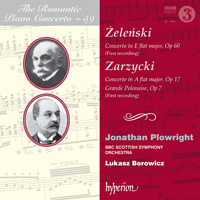 Zarzycki & Zelenski: Piano Concertos
Zarzycki & Zelenski: Piano Concertos
Władysław Żeleński (1837-1921) – Piano Concerto in E flat major Op 60; Aleksander Zarzycki (1834-1895) – Piano Concerto in A flat major Op 17, and Grande Polonaise in E flat major Op 7
Jonathan Plowright (piano); BBC Scottish Symphony Orchestra; Łukasz Borowicz (conductor)
Hyperion CDA676958
“Zelenski’s lyrically emotional concerto shows the influence of Tchaikovsky, Franck and Grieg and offers Plowright plenty of opportunities to display his formidable talent” THE OBSERVER
“The dancing, native rhythms of the third movement [of Żeleński’s only piano concerto] are especially appealing, and Borowicz elicits some lovely, spontaneous playing from the BBCSSO. Most impressive though is the understated yet eloquent advocacy of Plowright, who brings much effervescence and charm to the proceedings. The high-res recording is a little on the bright side, but there’s enough oomph in those tasteful tuttis to make amends..” MUSICWEB INTERNATIONAL (Discovery of the Month)
“….who better to do the business than that alchemist amongst keyboard players, Jonathan Plowright” GRAMOPHONE
[Source: press release, jonathanplowright.com]
Recent Performances & Events
New Opera With Voice Of Auguścik & Text Of Mrożek
On May 17, 2013 at the University of Chicago, the premiere of an opera entitled Strip Tease was held as a part of the “Tomorrow’s Music Today” concerts in the University’s esteemed Contempo series. The work was composed by Dylan Schneider, a doctoral student of Polish composer Marta Ptaszyńska, who holds the
The instrumental ensemble was comprised of two giants of the contemporary music scene—eighth blackbird and the Pacifica Quartet—and Chicago-based Polish jazz vocalist Grażyna Auguścik made her operatic debut in a major role as Hand.
The opera is written to the famous play of Slawomir Mrożek.
[Sources: press release, chicagoclassicalreview.com/. Image: dziennikzwiazkowy.com]
Concert Review: LA Phil & Penderecki
By Gary Fitelberg
“I have spent decades searching for and discovering new sounds. At the same time, I have closely studied the forms, styles and harmonies of past eras. I have continued to adhere to both principles … my current creative output is a synthesis.” Krzysztof Penderecki
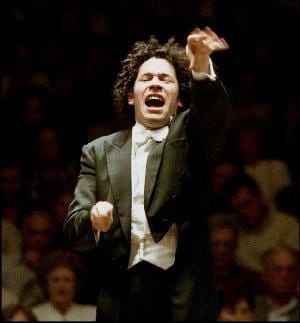 Under the baton of Music Director Gustavo Dudamel (at right), the Los Angeles Philharmonic presented its first performance of Krzysztof Penderecki’s Ciaccona on Sunday May 26, 2013. The serious, short, somber piece lasts only seven minutes.
Under the baton of Music Director Gustavo Dudamel (at right), the Los Angeles Philharmonic presented its first performance of Krzysztof Penderecki’s Ciaccona on Sunday May 26, 2013. The serious, short, somber piece lasts only seven minutes.
According to the LA Phil program notes:
The Ciaccona is an extract from one of Penderecki’s major works, his Polish Requiem, for soloists, chorus, and a large orchestra. An analogy to Brahms’ German Requiem does not apply to this work, for, with the exception of a hymn sung for the Offertory, the texts are not in Polish, but are the traditional Latin words as set by Mozart, Berlioz, Verdi, and countless other composers. Unlike some of those composers Penderecki is a devout Catholic, although he himself has stated that the human significance of the Requiem text means more to him than its traditional liturgical function.
Born in 1933, Penderecki has watched his country survive the grim years of German occupation and Soviet colonization; the experience of suffering and endurance lies behind his setting of the Requiem, with its profound meditation on death. The work has existed in many forms, for it was fashioned in 1984 by absorbing two earlier works, his Lacrimosa, from 1970, and his Agnus dei, from 1981. The Lacrimosa was a response to events in the Gdańsk shipyards in 1970 and is dedicated to Lech Wałęsa and the Solidarity Union. The Agnus dei, for unaccompanied eight-part chorus, was composed for the funeral of Penderecki’s friend, Cardinal Stefan Wyszyński, in 1981. The Requiem had its first full performance in Stuttgart on September 28, 1984, conducted by one of the composer’s most ardent supporters, Mstislav Rostropovich, who had been the first to introduce the Lacrimosa to the USA in a performance in 1981 in Washington, DC, with his wife Galina Vishnevskaya as the soprano soloist.
More was yet to be added to the Requiem, for in 1993 Penderecki wrote the Sanctus and gave its first performance in Stockholm that year. The Requiem was still not complete, for at the death of Pope John Paul II in April 2005, the composer inserted an instrumental movement between the Agnus dei and the Sanctus in memory of the Polish Pope and gave the first performance on September 17, 2005, in Wrocław. This is the Ciaccona for strings.
As with the traditional baroque Chaconne, the Ciaccona is built on a simple descending bass line with richly ornamental writing for the strings. There are nine reiterations of the basic pattern, supporting a strong melodic line heard mostly in the violins, but also in the cellos. The ending vanishes in high harmonics over a fading, misty chord.
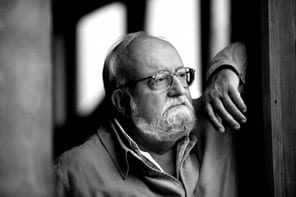 Penderecki began piano and violin studies at an early age, and at first wanted to become a virtuoso violinist. After studying composition at the conservatory in Krakow, however, he quickly won many prizes for his innovative string textures, which established him as a leading European modernist. His music ranges from works on tape to opera and film scores, and he has won, among others, the Grawemeyer Award for his Symphony No. 4 and a Grammy for Best Contemporary Classical Composition for his Violin Concerto No. 2.
Penderecki began piano and violin studies at an early age, and at first wanted to become a virtuoso violinist. After studying composition at the conservatory in Krakow, however, he quickly won many prizes for his innovative string textures, which established him as a leading European modernist. His music ranges from works on tape to opera and film scores, and he has won, among others, the Grawemeyer Award for his Symphony No. 4 and a Grammy for Best Contemporary Classical Composition for his Violin Concerto No. 2.
Also on the May 26 concert program were Mozart and Mendelson in what was largely and mostly a Mozart May. On this occasion we were blessed to hear the featured LA Phil musical artists and principals oboist Ariana Ghez, clarinetist, Michele Zukovsky, bassonist Whitney Crockett, bassoonand horn player Andrew Bain presenting a masterful performance blended to perfection of Mozart’s Sinfonia concertante, K. 297b. Adding icing to the delicious flavor was Mendelssohn’s Symphony No. 5, the “Reformation” symphony.
Also from the LA Phil website:
Mozart’s “other” Sinfonia concertante, for four wind soloists, reminds us of the skillfulness with which the composer utilized these instruments in his extraordinary serenades and divertimentos; he even called on them as a choir of extra voices in his mature piano concertos. Here they become the focus of his, and our, attention.
The LA Phil should be commended for including such great Polish composers as Witold Lutosławski and Krzysztof Penderecki in their vast concert repertoire and recent performances.
[Sources: laphil.com]
Koziak In Houston
 Young Polish pianist Marcin Koziak presented a recital entitled “Musical Evening in Memory of Van Cliburn on May 17, 2013 at the Russian Cultural Center in Houston, TX. Koziak’s program included: Polonaise in A-flat major, Op.53, Scherzo No.2 in B-flat minor, Op.31 and Nocturne in F-sharp major, Op.15 No.2 of Frédéric Chopin; Mazurkas, Op.50 Nos. 1-4 of Karol Szymanowski; Sonata No.2 in B-flat minor, Op.36 of Sergei Rachmaninov; Préludes – Book I of Claude Debussy; and Birichino of Christopher Theofanidis.
Young Polish pianist Marcin Koziak presented a recital entitled “Musical Evening in Memory of Van Cliburn on May 17, 2013 at the Russian Cultural Center in Houston, TX. Koziak’s program included: Polonaise in A-flat major, Op.53, Scherzo No.2 in B-flat minor, Op.31 and Nocturne in F-sharp major, Op.15 No.2 of Frédéric Chopin; Mazurkas, Op.50 Nos. 1-4 of Karol Szymanowski; Sonata No.2 in B-flat minor, Op.36 of Sergei Rachmaninov; Préludes – Book I of Claude Debussy; and Birichino of Christopher Theofanidis.
Marcin Koziak was born in 1989 in Krakow, Poland, in a musical family. He is a student of Texas Christian University in Fort Worth under the tutorship of Professor Tamás Ungár and the Academy of Music in Krakow under the tutorship of Professor Stefan Wojtas. At the age of ten he won his first Poland-wide competition. As an eleven-year-old boy he made his debut with Krakow Philharmonic Symphony Orchestra.
He is a laureate of many Poland-wide and international competitions. The biggest ones are: II prize at the 5th International Chopin Competition for Young Pianists in Narva (Estonia, 2004), I prize at the 2nd International Chopin Competition for Young Pianists in Budapest (2006) and II prize and three additional prizes at the 7th International Competition for Young Pianists “Arthur Rubinstein in memoriam” in Bydgoszcz (Poland, 2007). He is a semifinalist and a laureate of three extra-statutory prizes of the 16th International Chopin Piano Competition in Warsaw (2010). His scholarships include the Scholarship of Minister of Culture and National Heritage “Young Poland 2008” and the Scholarship of Jolanta and Aleksander Kwasniewski Foundation. Mr. Koziak has been invited to take part in the 14th Van Cliburn International Piano Competition.
Marcin Koziak has given concerts during many festivals, including: 30th La Roque d’Anthéron International Piano Festival (France, 2010), ‘La Folle Journée au Japon’ (Tokyo,2010), 1st ASEM Culture and Arts Festival (Beijing, 2009), Rubinstein Piano Festival (Łódź,2011), ‘La Folle Journée au Varsovie’ (Warsaw, 2010), 10th International Festival “Kiev Summer Music Evenings” (2007), 66th International Chopin Festival in Duszniki Zdrój (2011) and many more festivals and concert cycles in Geneva, Paris, Aix-en-Provence, Milan, Warsaw, Kraków, Lodz, Katowice.
He has performed with many orchestras such as the Chinese National Symphony Orchestra, Warsaw Philharmonic Symphony Orchestra, Sinfonia Varsovia, Hong Kong Sinfonietta, Sinfonietta Cracovia, Krakow Philharmonic Orchestra, Poznan Philharmonic Orchestra, Lodz Philharmonic Orchestra, Polish Orchestra Sinfonia Iuventus, Beethoven Academy Orchestra and worked with conductors such as: Alexander Lazarev, Antoni Wit, George Tchitchinadze, Xieyang Chen, Maximiano Valdes, Yip Wing-sie, Charles Olivieri-Munroe, Marek Pijarowski, Pawel Przytocki, Stanislaw Krawczynski, Michal Dworzynski, Boguslaw Dawidow, Michal Nesterowicz, Pavel Kotla.
He performed in the Tokyo International Forum, Forbidden City Concert Hall (Beijing), National Centre for the Performing Arts (Beijing), Art Center of Kobe (Kobe, Japan), Auditorium di Milano, Cadogan Hall (London), Warsaw Philharmonic Concert Hall, Salle Cortot (Paris), Great Hall in Conservatory in Geneva, Verdi Hall in Conservatory in Milan, National Opera in Warsaw and in the other concert halls in Japan, China, USA, Russia, Ukraine, Austria, Italy, Switzerland, Poland, Germany, France, Great Britain, Norway, Iceland, Sweden, Romania, Georgia, Estonia and Hungary.
His concerts were transmitted by Japanese radio Ottava, radio France Musique, Polish Radio and Polish Television. On 4th May 2011 he had the privilege to give a recital in Warsaw for Her Majesty Queen Silvia of Sweden and for the First Lady of the Republic of Poland Anna Komorowska during the official visit of HM in Poland. On 1st July 2011 he took part in a grand concert in the Baths of Caracalla in Rome organized on the occasion of the beginning of Polish Presidency in European Union. He played on the Opening Gala of the Fryderyk Chopin Museum in Warsaw on March 1, 2010—the 200th anniversary of the composer’s birthday. In December 2011 he had the honor to give a recital for President of Republic of Poland, Bronisław Komorowski.
[Sources: ourtx.org]
Concert Review: Josefowicz Plays Stravinsky
By Gary Fitelberg
 Polish-American-Canadian violin virtuosa Leila Josefowicz charmed the crowd at the concert JOSEFOWICZ PLAYS STRAVINSKY, performed together with the Los Angeles Philharmonic and Finnish conductor Susanna Mälkki at the Walt Disney Concert Hall April 12-14, 2013. Having graduated from the Colburn School of Music literally just down the road from Disney Hall, Josefowicz received a warm welcome back as “a local” and a regular guest artist at the LA Phil. She was given a standing ovation for her superb talent in performing Stravinsky’s Violin Concerto in D major. Also on the concert program was the U.S. Premiere of Poppe’s Markt (Saturday and Sunday only) and Brahms’ Symphony No. 4 in E minor, Op. 98.
Polish-American-Canadian violin virtuosa Leila Josefowicz charmed the crowd at the concert JOSEFOWICZ PLAYS STRAVINSKY, performed together with the Los Angeles Philharmonic and Finnish conductor Susanna Mälkki at the Walt Disney Concert Hall April 12-14, 2013. Having graduated from the Colburn School of Music literally just down the road from Disney Hall, Josefowicz received a warm welcome back as “a local” and a regular guest artist at the LA Phil. She was given a standing ovation for her superb talent in performing Stravinsky’s Violin Concerto in D major. Also on the concert program was the U.S. Premiere of Poppe’s Markt (Saturday and Sunday only) and Brahms’ Symphony No. 4 in E minor, Op. 98.
Igor Stravinsky’s Violin Concerto in D is a neoclassical violin concerto in four movements, composed in the summer of 1931 and premiered on October 23, 1931 with young violinist Samuel Dushkin and the Berlin Radio Symphony Orchestra, conducted by Stravinsky himself. It lasts approximately twenty minutes. It was used by George Balanchine as music for two ballets.
According to the LA Phil program notes for the Stravinsky:
The idea of writing a violin concerto was suggested to Stravinsky in 1930 by Willy Strecker, head of the Schott publishing firm in Mainz, as a vehicle for a young Polish-American violinist named Samuel Dushkin, a pupil of Leopold Auer and Fritz Kreisler. The composer’s initial, seemingly alarmed response was, “But I am not a violinist!” He was, in fact, a pianist, whose two previous concertos had been written for his own performance. But this turned out not to be a rejection of the notion of writing for the violin; it was a qualified yes.
Stravinsky sought the advice of fellow composer Paul Hindemith, who was also a professional violist. Hindemith assured Stravinsky that the lack of first-hand experience with the violin would not be an impediment; on the contrary, he was certain that it would help Stravinsky “avoid a routine technique and would give rise to ideas which would not be suggested by the familiar movement of the fingers.” Stravinsky, who seldom (ever?) lacked self-confidence was reassured by these words and set himself to the task.
Continue reading these notes at www.laphil.com.
 The acoustics at the world class Walt Disney Concert Hall lend an atmosphere conducive to the best concert performances of any hall. They enhanced the already superior skills in this engaging performance by violinist Leila Josefowicz.
The acoustics at the world class Walt Disney Concert Hall lend an atmosphere conducive to the best concert performances of any hall. They enhanced the already superior skills in this engaging performance by violinist Leila Josefowicz.
Gary Fitelberg is a musicologist, music critic and historian specializing in Polish music and musicians.
[Source: laphil.com]
Anniversaries
Born This Month
-
June 1, 1909 – Maria DZIEWULSKA, composer and theoretician (d. 2006)
-
June 4, 1845 – Aleksander POLIŃSKI, music historian (d. 1916)
-
June 4, 1784 – Adam CZARNOCKI, music ethnographer (d. 1825)
-
June 5, 1865 – Felicjan SZOPSKI, composer and music critic (d. 1939)
-
June 6, 1929 – Bogusław SCHAEFFER, composer, writer
-
June 12, 1897 – Aleksander TANSMAN, composer and pianist,
-
June 16, 1923 – Henryk CZYŻ, conductor and composer
-
June 17, 1930 – Romuald TWARDOWSKI, composer
-
June 28, 1895 – Kazimierz SIKORSKI, composer and teacher
-
June 28, 1904 – Włodzimierz POŹNIAK, musicologist
Died This Month
-
June 1, 1869 – Jozef DULEBA, pianist and participant of January Uprising, died in a duel (b. 1843)
-
June 3, 1904 – Daniel FILLEBORN, singer and performer of main parts in Moniuszko’s operas (b. 1841)
-
June 4, 1872 – Stanislaw MONIUSZKO, Father of Polish National opera (b. 5 May 1819)
-
June 5, 1964 – Henryk SZTOMPKA, pianist, Chopin specialist, teacher
-
June 9, 1932 – Natalia JANOTHA, pianist and composer, student of Clara Wieck-Schumann, Royal Pianist in London, 400 opus numbers (b. 1856)
-
June 10, 1953 – Grzegorz FITELBERG, conductor, composer, great promoter of new music, esp. Szymanowski (b. 1879)
-
June 28, 1938 – Ludwik DRZEWIECKI, pianist and father of Zbigniew Drzewiecki
-
June 29, 1945 – Kazimierz GARBUSINSKI, pianist, organist, composer
-
June 30, 1957 – Michal SWIERZYNSKI, composer and choral conductor
